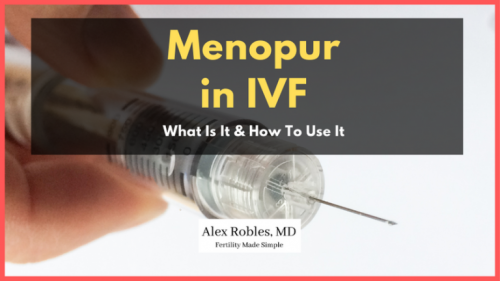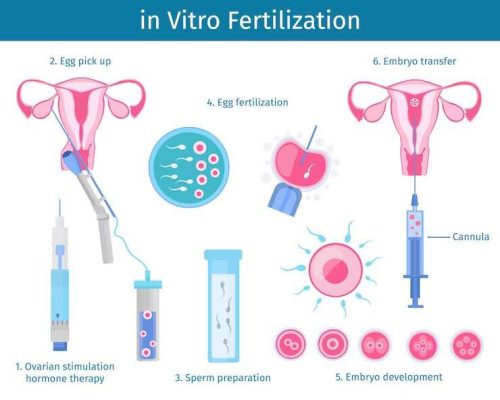
Age-Related Fertility Decline: What Can You Do About It?
I was 35 when I first started to really think about my fertility. For a long time, I believed I had all the time in the world to start a family. I was busy building my career, traveling, and enjoying life. But when my partner and I decided it was finally time to try for a baby, things didn’t go as planned. After months of trying and countless negative pregnancy tests, I realized something was wrong.
I went to a fertility clinic, and after a few tests, I learned something I wasn’t prepared for: my age had already started to impact my fertility. I had heard about “age-related fertility decline,” but it didn’t really hit home until it became my reality.

The Reality of Age-Related Fertility Decline
Fertility naturally decreases as we age, and the decline is most noticeable after the age of 35. By then, the number of eggs in your ovaries starts to decrease, and the quality of those eggs declines as well. This makes it harder for women to get pregnant, and if they do, there’s a higher risk of miscarriage. I didn’t know it at the time, but the problem wasn’t just the quantity of my eggs—it was the quality.
According to Dr. Emily Owens, a fertility specialist I later consulted, “Age is one of the most significant factors in a woman’s fertility. Once a woman hits 35, we often see a sharp decline in egg quality, which directly affects the chances of conception and a healthy pregnancy.”
I remember feeling a mix of shock and disbelief when I first heard that. I had always assumed I’d have time to wait. But now, I had to face the reality that my window for natural conception was closing.

The Steps I Took: IVF
The clinic suggested that I try IVF (in vitro fertilization), given my age and the challenges I faced with egg quality. It wasn’t an easy decision. IVF felt overwhelming at first—so many appointments, medications, and procedures. But I knew it was my best option.
What really helped me through the process was the personal care I received from the fertility team. Dr. Owens said something that stuck with me: “IVF isn’t just about science; it’s about your story. Each patient is unique, and we treat you like an individual, not just a number.”
IVF isn’t a one-size-fits-all solution. My treatment plan included hormone therapy to stimulate my ovaries and produce multiple eggs. After retrieving those eggs, they were fertilized in the lab and then monitored for development. We transferred a healthy embryo into my uterus a few weeks later.

Managing Expectations: What I Wish I Knew
One of the most difficult parts of the IVF process was managing my expectations. Even though I wanted to be optimistic, I had to face the truth that IVF doesn’t guarantee success, especially when age is a factor. I remember asking Dr. Owens, “How likely is it that this will work for me?”
Her answer was honest and straightforward: “Age does lower the success rates of IVF, but it’s not impossible. It’s important to stay hopeful, but also realistic. Some patients, even in their late 30s or early 40s, do achieve success.”
It took two rounds of IVF for me to finally get a positive pregnancy test. But I’ll never forget the day I saw those two pink lines. It was worth every shot, every appointment, and every moment of uncertainty.
What Can You Do?
If you’re reading this and finding yourself in a similar situation, here’s what I would suggest based on my experience:
- Don’t wait too long – If you’re considering starting a family later in life, know that your fertility will likely decline with age. The earlier you take action, the better your chances.
- Get a fertility evaluation – You don’t need to wait until you’ve been trying for months. A simple evaluation can help you understand where you stand, especially if you’re over 35. It could save you time and stress in the long run.
- Consider IVF or other options – If age-related fertility decline is affecting your ability to conceive, don’t hesitate to explore IVF. Modern fertility treatments have come a long way and offer hope even for women over 40.
- Stay positive, but realistic – Fertility treatment can be a rollercoaster. Success isn’t guaranteed, but with the right support and care, it’s possible. Trust the process, but also take care of your mental and emotional health.
- Seek support – Whether it’s a fertility counselor, a support group, or friends and family, having a strong support system is invaluable. This journey is tough, but you’re not alone.
In the end, I’m beyond grateful that I didn’t wait longer to seek help. Age-related fertility decline is a real issue, but there are options out there. IVF was my path to motherhood, and I couldn’t be more thankful for the science and the specialists who helped me through it.
Closing Thoughts
Fertility struggles are incredibly personal, and everyone’s story is different. But if you’re struggling with age-related fertility decline, know that you’re not alone. There are steps you can take, treatments you can try, and professionals who will walk with you every step of the way. Keep hope alive, and never stop believing that your story can have a happy ending.




